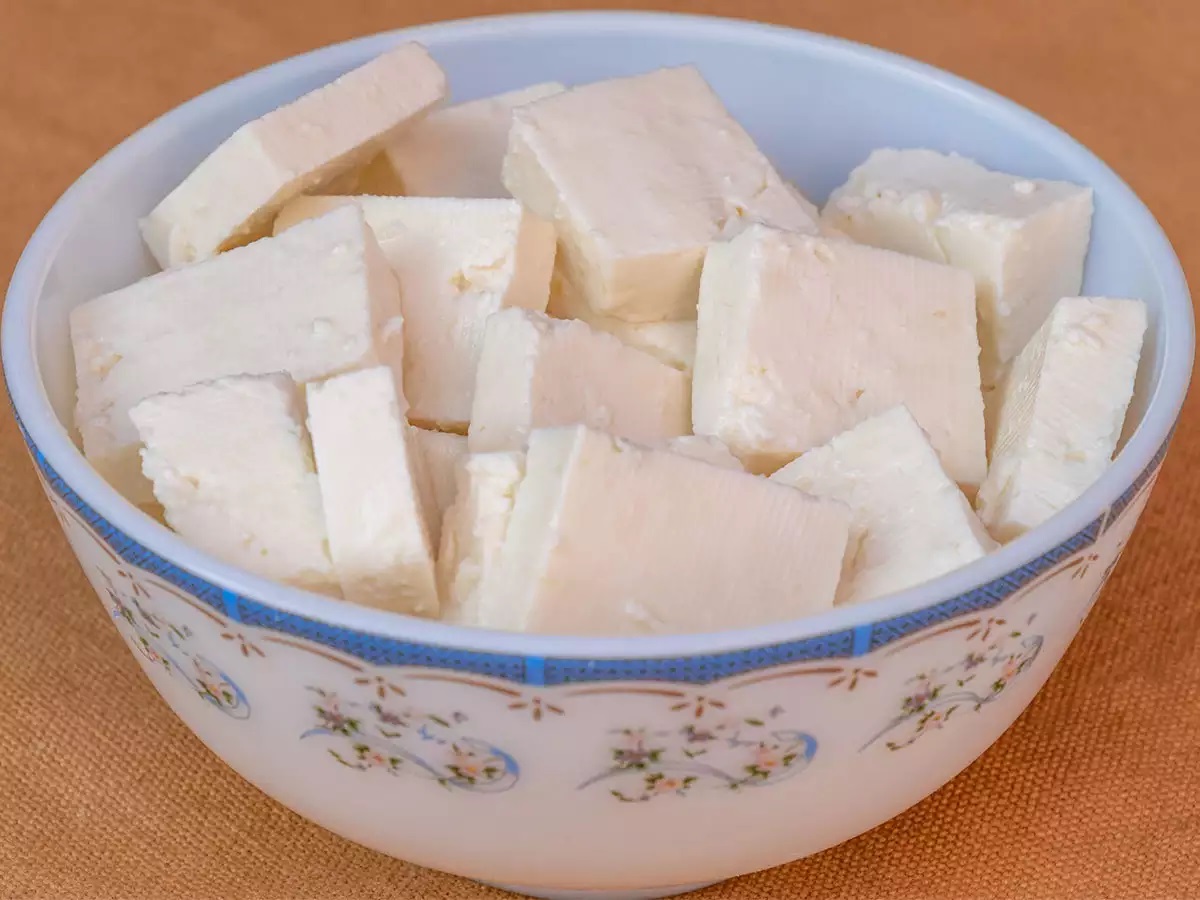

Articles
How To Store Paneer In Fridge
Modified: December 7, 2023
Learn how to store paneer in the fridge and keep it fresh for longer with these helpful articles. Follow our tips and tricks for proper storage.
(Many of the links in this article redirect to a specific reviewed product. Your purchase of these products through affiliate links helps to generate commission for Storables.com, at no extra cost. Learn more)
Introduction
Paneer, a popular ingredient in Indian cuisine, is a type of fresh cheese that is commonly used in dishes like paneer tikka, palak paneer, and paneer butter masala. Its delicate texture and mild flavor make it a versatile ingredient that can be used in both savory and sweet preparations.
When storing paneer in the fridge, it is crucial to follow the correct methods to ensure its freshness and quality. Improper storage can lead to spoilage, resulting in a loss of taste, texture, and nutritional value. In this article, we will explore the importance of properly storing paneer and provide you with practical tips to keep it fresh for longer.
By following the recommended guidelines, you can extend the shelf life of paneer, allowing you to enjoy this delicious cheese for a longer duration without compromising its taste or quality.
Key Takeaways:
- Properly storing paneer is crucial to maintain its freshness, texture, and taste. Follow the guidelines to avoid spoilage, reduce food waste, and enjoy delicious paneer in your favorite recipes.
- Be aware of the signs of spoiled paneer to ensure you always enjoy fresh, flavorful, and safe paneer in your culinary creations. Practice proper storage and handling techniques for optimal results.
Read more: How To Store Butter In Fridge
Importance of Properly Storing Paneer
Properly storing paneer is essential to maintain its freshness, taste, and texture. Here’s why it is important:
- Preventing Spoilage: Paneer is a perishable food item that can spoil quickly if not stored correctly. Inadequate storage conditions can result in bacterial growth, leading to an unpleasant smell, taste, or even foodborne illnesses.
- Retaining Texture: Fresh paneer has a soft and crumbly texture that enhances its appeal in various dishes. By storing it properly, you can preserve the delicate texture and prevent it from turning rubbery or dry.
- Maintaining Flavor: Proper storage helps preserve the flavor of paneer. When exposed to air or inappropriate storage conditions, paneer can absorb odors from other foods in the refrigerator, resulting in a loss of its distinct taste.
- Reducing Waste: By storing paneer correctly, you can extend its shelf life and minimize food waste. This allows you to enjoy paneer over multiple meals without the need to discard any unused portions.
By understanding the importance of proper paneer storage, you can ensure that this versatile ingredient remains fresh and enjoyable, enhancing your culinary creations.
Choosing the Right Container for Paneer Storage
When it comes to storing paneer, selecting the right container is crucial to maintain its freshness and texture. Here are some factors to consider when choosing a container for paneer storage:
- Airtightness: Opt for a container that provides an airtight seal. This will prevent air from entering the container and help maintain the moisture content of the paneer, keeping it soft and moist.
- Material: Choose a container made of food-grade material, such as glass or BPA-free plastic. These materials do not transfer any harmful substances to the paneer and are easy to clean.
- Size and Shape: Select a container that is appropriate for the quantity of paneer you usually store. It should have enough space to accommodate the paneer without overcrowding, which can result in squishing or excessive moisture accumulation.
- Transparency: Opt for a transparent container that allows you to see the paneer without opening it. This way, you can check its condition without unnecessary exposure to air.
- Easy to Clean: Ensure that the container is dishwasher-safe or easy to clean by hand. Regular cleaning prevents the build-up of bacteria or food residue, maintaining hygiene and extending the shelf life of the paneer.
Remember to label the container with the date of storage to keep track of its freshness. Choosing the right container ensures that the paneer remains protected and retains its quality until it is ready to be used in your recipes.
Preparing Paneer for Storage
Before storing paneer, it is important to prepare it properly to ensure its longevity and quality. Here are some steps to follow when preparing paneer for storage:
- Drain Excess Water: If the paneer you have purchased or made at home contains excess water, gently squeeze it to remove any excess moisture. This step helps prevent the paneer from becoming soggy and extends its shelf life.
- Wrap in Kitchen Towel or Paper Towel: Next, wrap the paneer in a clean and dry kitchen towel or paper towel. This helps absorb any remaining moisture on the surface of the paneer and prevents it from becoming damp.
- Place in a Ziploc Bag or Wrap in Foil: After wrapping the paneer, place it in a ziploc bag or wrap it tightly in aluminum foil. This creates a barrier against air and prevents the paneer from drying out or absorbing any odors from the refrigerator.
- Label the Package: It is important to label the package with the date of storage. This way, you can easily keep track of how long the paneer has been stored and ensure you use it within the recommended timeframe.
By following these simple steps, you can prepare paneer for storage in a way that preserves its texture and flavor, allowing you to enjoy it for an extended period of time.
Storing Paneer in the Fridge
Properly storing paneer in the refrigerator is crucial to maintain its freshness and quality. Here are the steps to follow when storing paneer:
- Choose the Right Shelf: Place the paneer on the top or middle shelf of the refrigerator. This ensures that it stays at a consistent temperature and minimizes the risk of it being exposed to temperature fluctuations.
- Keep Away from Strong Odors: Avoid storing paneer near strong-smelling foods like onions, garlic, or spices. Paneer easily absorbs odors, which can affect its taste and aroma.
- Store in an Airtight Container: Transfer the wrapped paneer to an airtight container. This provides an extra layer of protection against air and moisture, helping to maintain its freshness and prevent it from drying out.
- Keep Away from Moisture: Ensure that the paneer does not come into contact with any liquids or condensation in the refrigerator. Excess moisture can cause the paneer to become soggy and prone to spoilage.
- Avoid Excessive Handling: Minimize the handling of paneer once it is stored in the refrigerator. Excessive handling can lead to the transfer of bacteria and accelerate spoilage.
Remember to follow the recommended storage guidelines and use the paneer within the recommended timeframe for optimal taste and quality.
By following these tips, you can properly store paneer in the refrigerator and maintain its freshness and quality for an extended period of time.
Store paneer in the fridge by wrapping it in a paper towel to absorb excess moisture, then placing it in an airtight container. This will help keep it fresh for up to 1 week.
Read more: How To Store Basil In Fridge
Tips for Maintaining Freshness of Paneer
To ensure the freshness and quality of paneer, here are some tips to help you maintain its optimal condition:
- Use Fresh Paneer: Start with fresh paneer when storing it. If you are making paneer at home, ensure that it is made from fresh and high-quality milk for the best results.
- Store in Small Portions: Instead of storing a large block of paneer, consider dividing it into smaller portions. This allows you to use only what you need, reducing the risk of wastage and ensuring that the remaining paneer stays fresh.
- Handle with Clean Hands: Always handle paneer with clean hands or utensils. Dirty hands can transfer bacteria to the paneer, leading to spoilage.
- Do Not Freeze Paneer: Paneer does not freeze well and can lose its texture and freshness when thawed. It is best to consume paneer within the recommended storage timeframe rather than freezing it.
- Avoid Overheating: When using paneer in recipes, avoid overheating it for an extended period of time. Excessive heat can cause the paneer to become tough and lose its softness.
- Check for Signs of Spoilage: Regularly inspect the paneer for any signs of spoilage, such as a foul smell, discoloration, or mold. If you notice any of these signs, discard the paneer immediately.
By following these tips, you can maintain the freshness and quality of paneer, ensuring that it remains a delicious and healthy ingredient in your culinary creations.
How Long Can Paneer Be Stored in the Fridge?
The shelf life of paneer can vary depending on various factors, including its freshness at the time of purchase or preparation. On average, paneer can be stored in the refrigerator for up to 3 to 4 days.
It is important to note that paneer is a perishable food item, and its quality can deteriorate over time. Therefore, it is recommended to consume paneer within the first few days of storage to enjoy its optimal freshness and taste.
If you have leftover paneer that you would like to store for a longer period, consider freezing it. Wrap the paneer tightly in plastic wrap or place it in an airtight container before freezing. Frozen paneer can last for up to 3 months, but it is important to thaw it properly before using. Thawing should be done gradually in the refrigerator to minimize any texture or flavor changes.
However, it is important to keep in mind that frozen and thawed paneer may have a slightly different texture compared to fresh paneer. The consistency may become slightly crumbly, but it can still be used in various recipes that call for cooked or blended paneer.
Always use your best judgment when determining the freshness of paneer. If you notice any signs of spoilage, such as a foul smell, discoloration, or mold, it is best to discard it to avoid any potential foodborne illnesses.
Remember to follow proper storage guidelines and consume paneer within the recommended timeframes to ensure its quality and safety.
Signs of Spoiled Paneer
It is important to be able to identify the signs of spoiled paneer to ensure that you consume it when it is still fresh and safe. Here are some common signs of spoiled paneer:
- Foul Smell: One of the most obvious signs of spoiled paneer is a foul or unpleasant odor. If you detect a strong or off-putting smell coming from the paneer, it is likely spoiled and should be discarded.
- Discoloration: Fresh paneer is typically white or cream in color. If you notice any discoloration, such as yellowing or browning, it is a sign that the paneer has started to spoil and should not be consumed.
- Mold Growth: Mold growth is a clear indication that the paneer has spoiled. If you see any black, green, or fuzzy patches on the surface of the paneer, it should be discarded immediately.
- Texture Changes: Spoiled paneer may undergo texture changes. It may become excessively dry, rubbery, or slimy. Any noticeable changes in texture are a sign that the paneer is past its prime and should not be consumed.
- Sour Taste: While paneer has a mild and slightly tangy taste, if it tastes excessively sour, bitter, or unpleasant, it is an indication that the paneer has gone bad and should be avoided.
It is important to note that spoiled paneer can pose health risks if consumed. Therefore, if you notice any of these signs, it is best to err on the side of caution and discard the paneer rather than risking foodborne illnesses.
To prevent the chances of paneer spoilage, always store it properly, consume it within the recommended timeframes, and maintain good hygiene practices during the handling and preparation process.
By being aware of the signs of spoiled paneer, you can ensure that you enjoy fresh and safe paneer in your dishes.
Conclusion
Properly storing paneer is essential to maintain its freshness, texture, and taste. By following the guidelines outlined in this article, you can ensure that your paneer stays in optimal condition for a longer duration.
From choosing the right container and preparing paneer for storage to storing it in the fridge and maintaining its freshness, each step plays a crucial role in preserving the quality of paneer. By adhering to these practices, you can avoid spoilage, reduce food waste, and enjoy delicious paneer in your favorite recipes.
Remember to always handle paneer with clean hands, store it in airtight containers, and keep it away from strong odors. Regularly inspect the paneer for signs of spoilage, including foul smells, discoloration, mold growth, changes in texture, and sour taste.
While paneer can be stored in the refrigerator for up to 3 to 4 days, freezing it allows for a longer storage period. However, it’s important to note that the texture of frozen and thawed paneer may differ slightly from fresh paneer.
By becoming familiar with the signs of spoiled paneer and practicing proper storage and handling techniques, you can ensure that you always enjoy fresh, flavorful, and safe paneer in your culinary creations.
So, the next time you bring home some paneer, make sure to follow these guidelines for proper storage and savor the delightful taste and texture of this versatile ingredient in your favorite dishes!
Frequently Asked Questions about How To Store Paneer In Fridge
Was this page helpful?
At Storables.com, we guarantee accurate and reliable information. Our content, validated by Expert Board Contributors, is crafted following stringent Editorial Policies. We're committed to providing you with well-researched, expert-backed insights for all your informational needs.
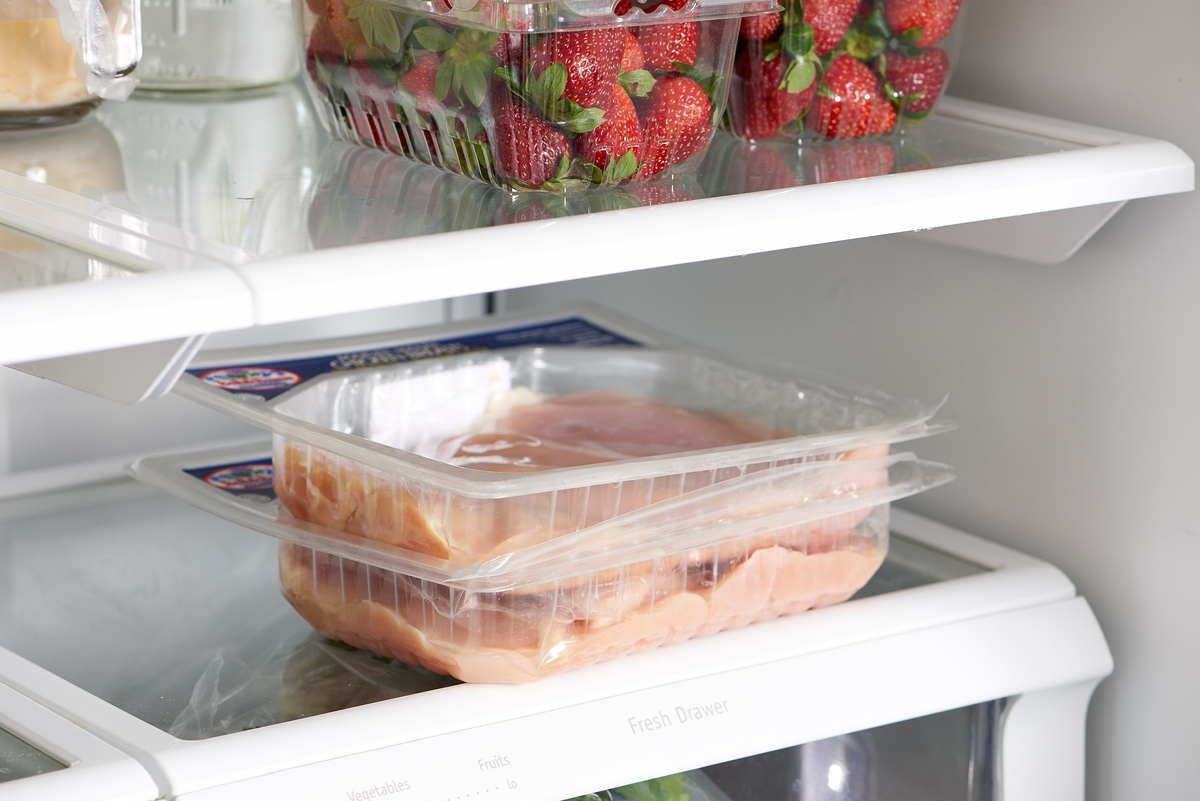

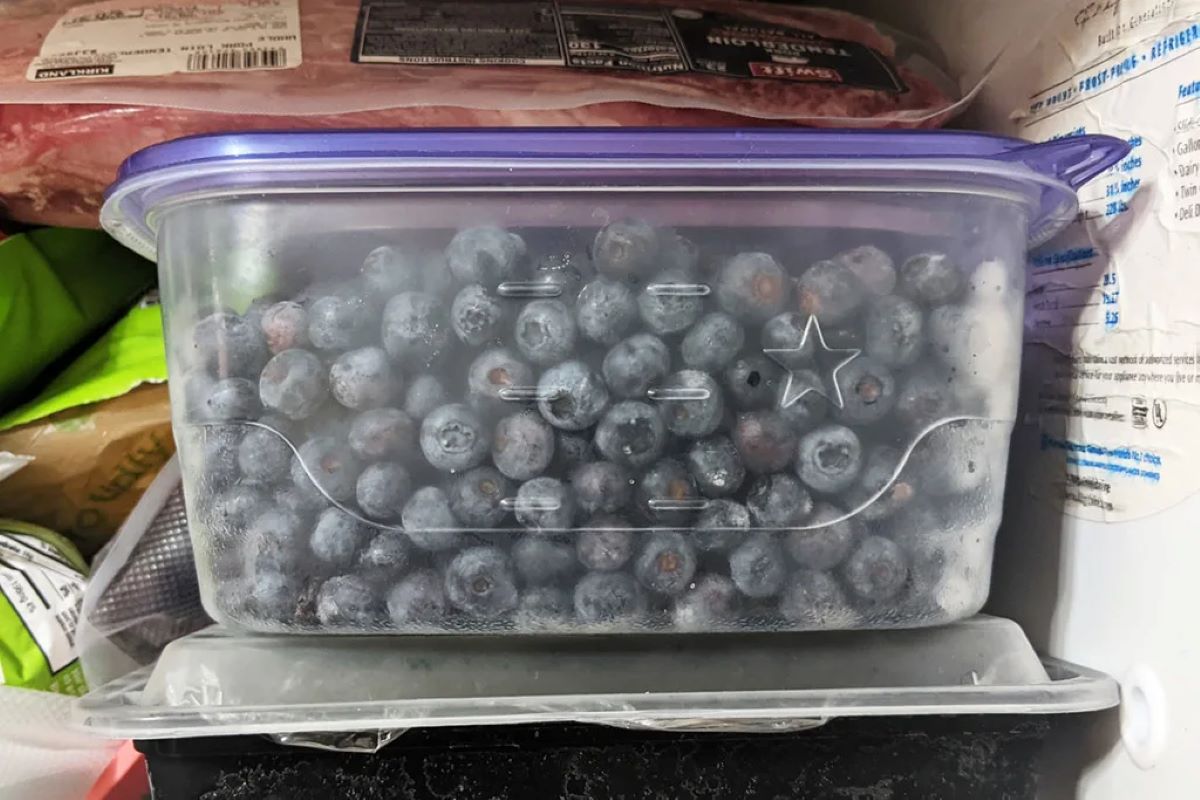
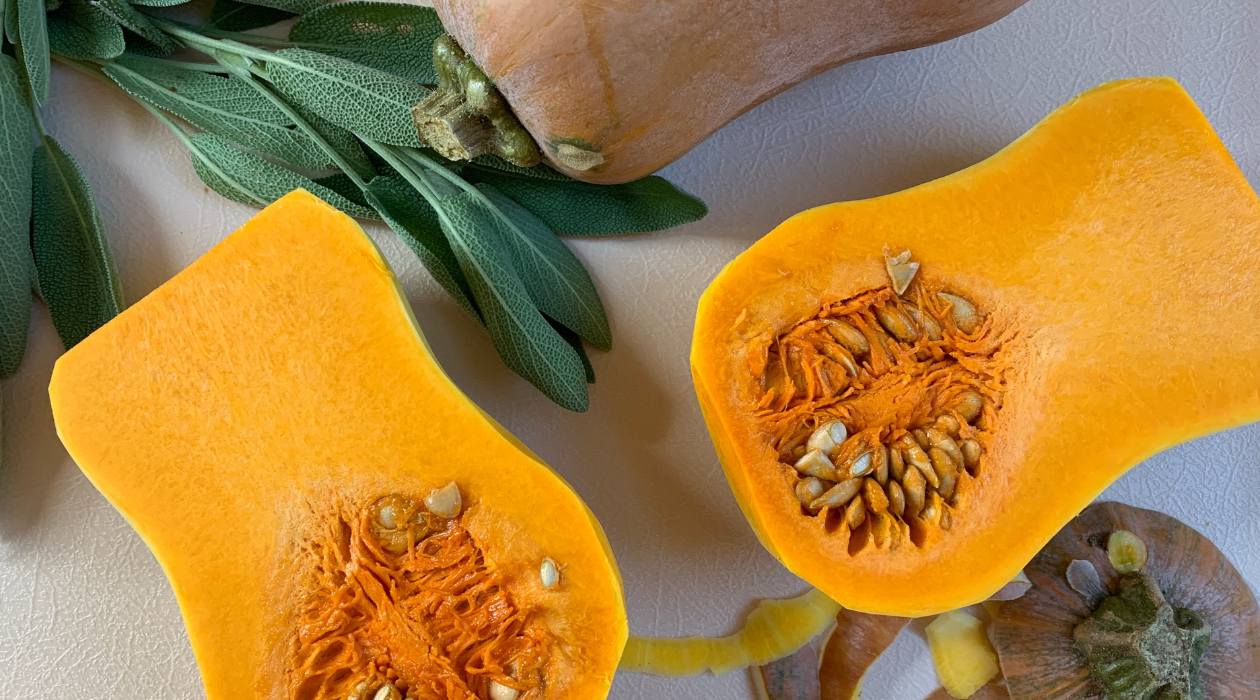
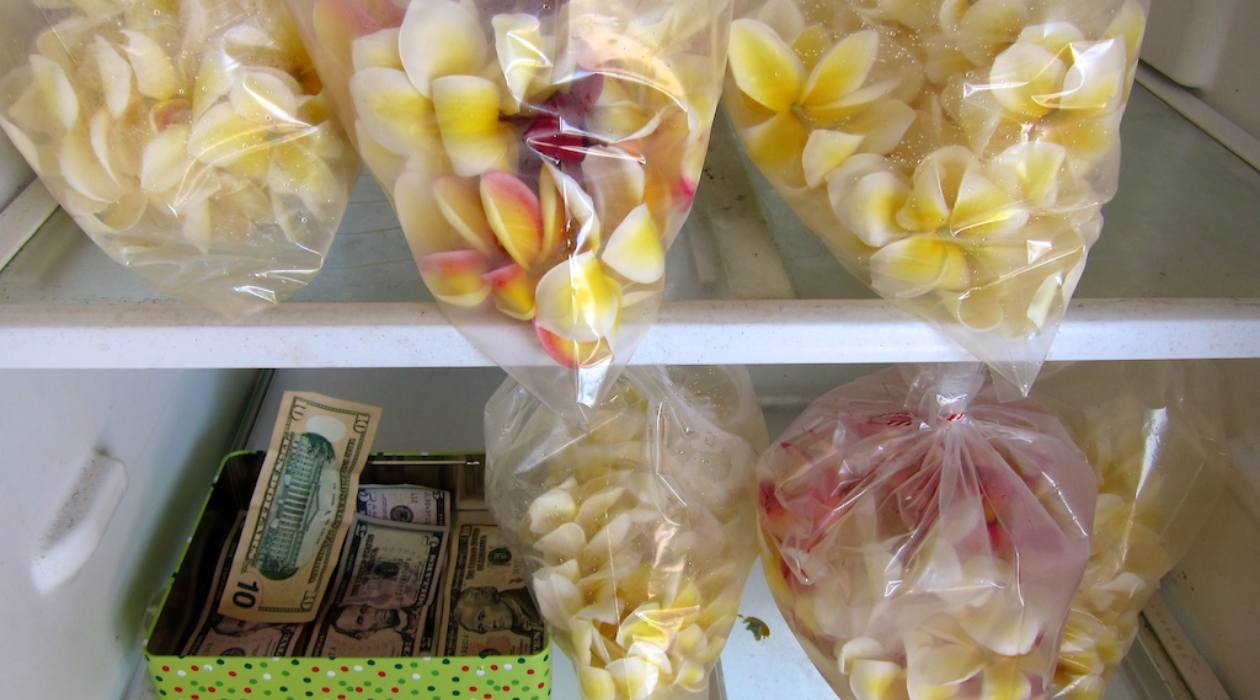

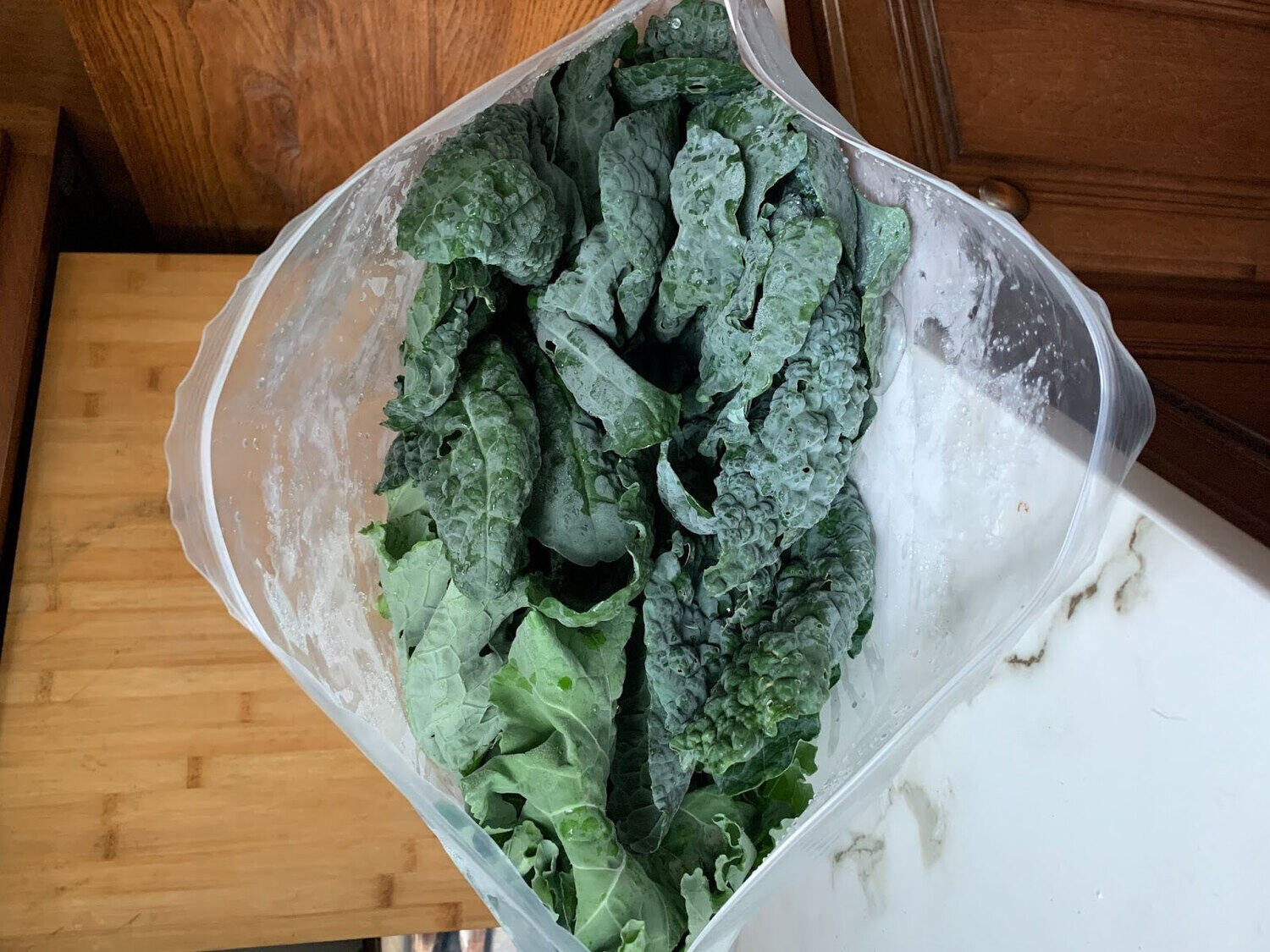
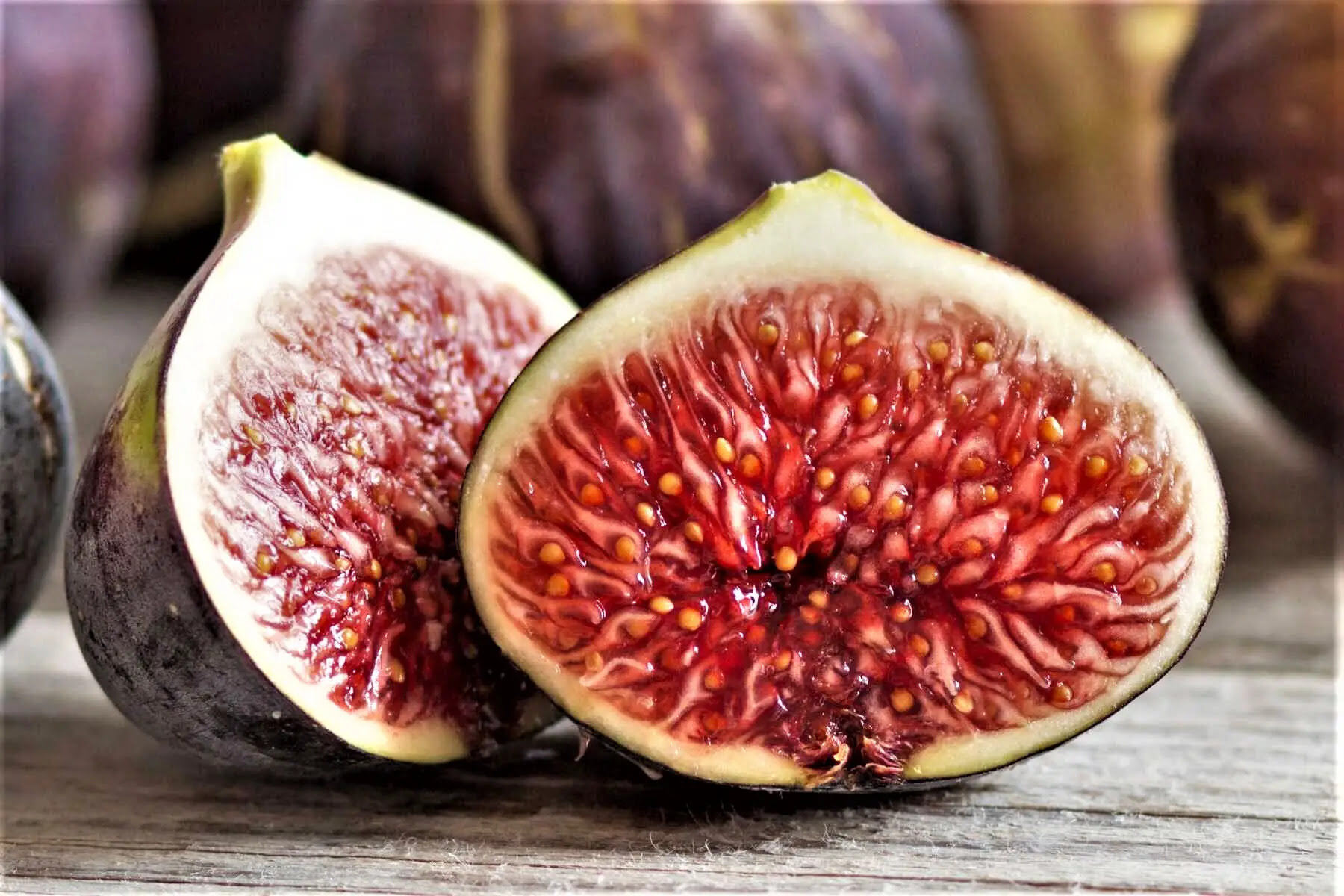
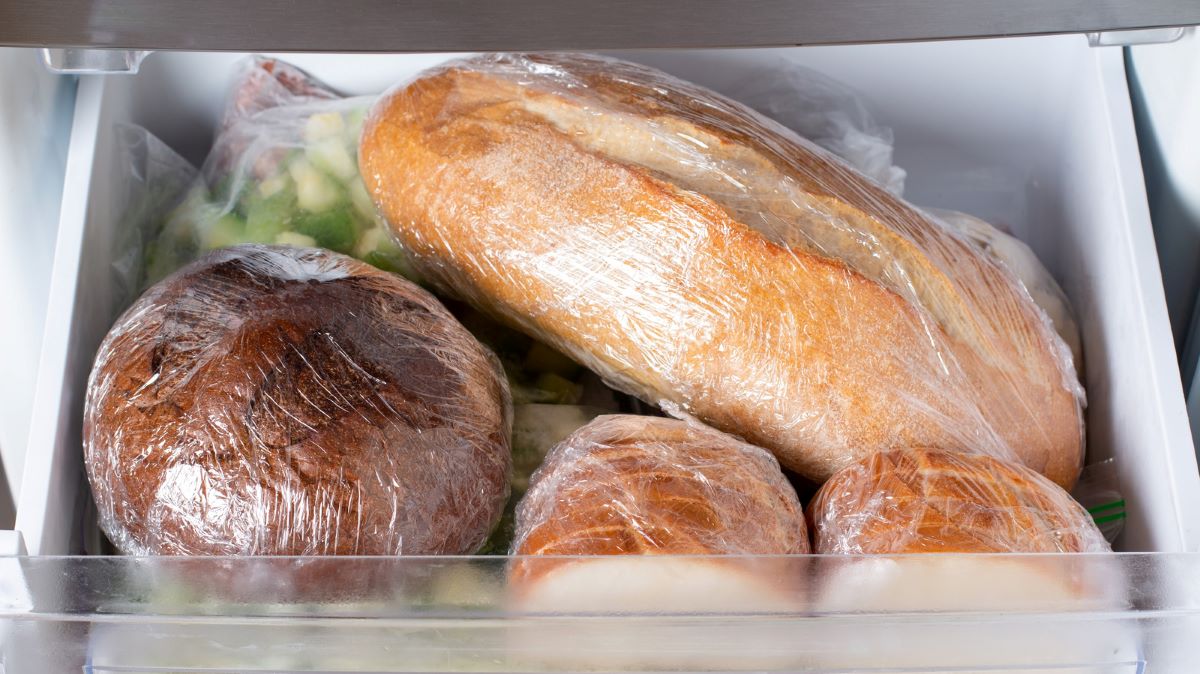
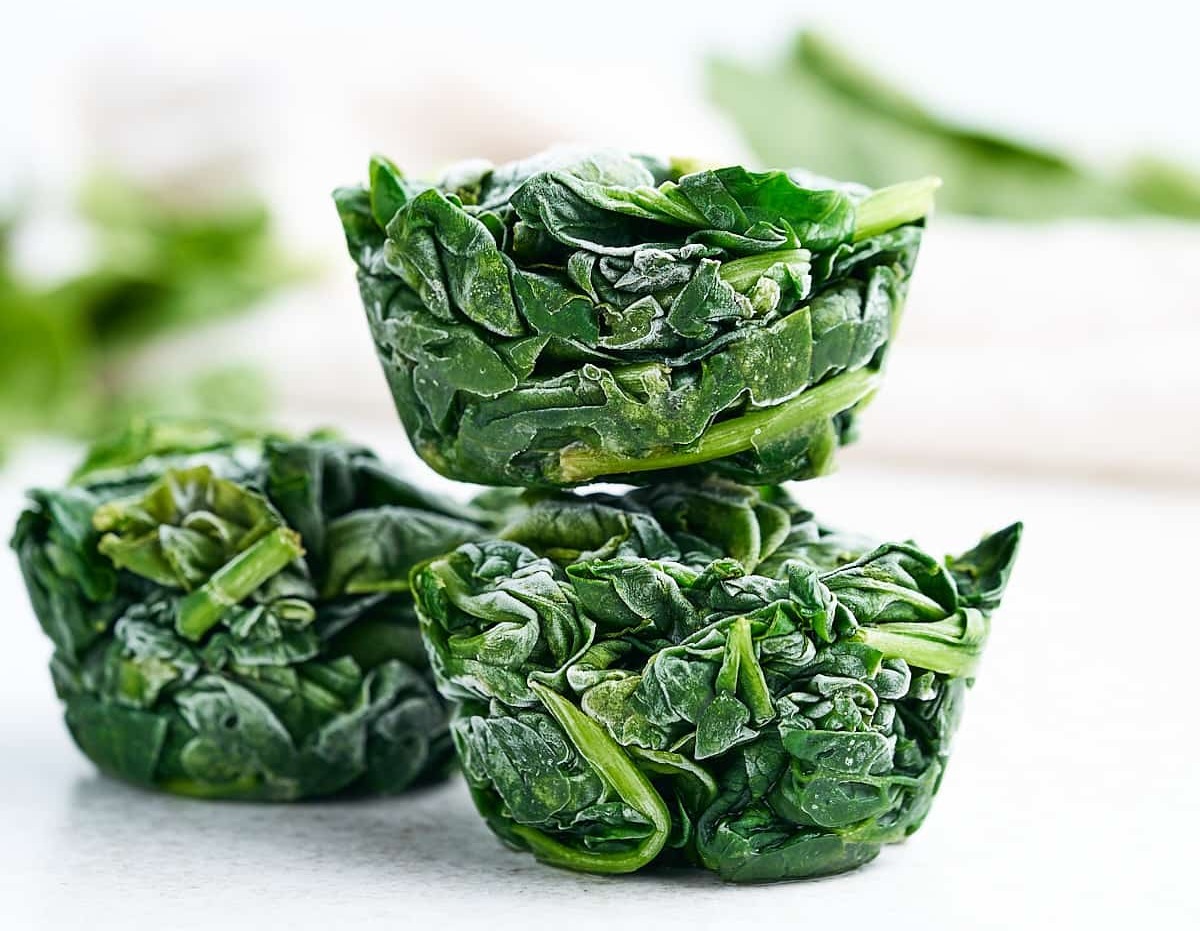

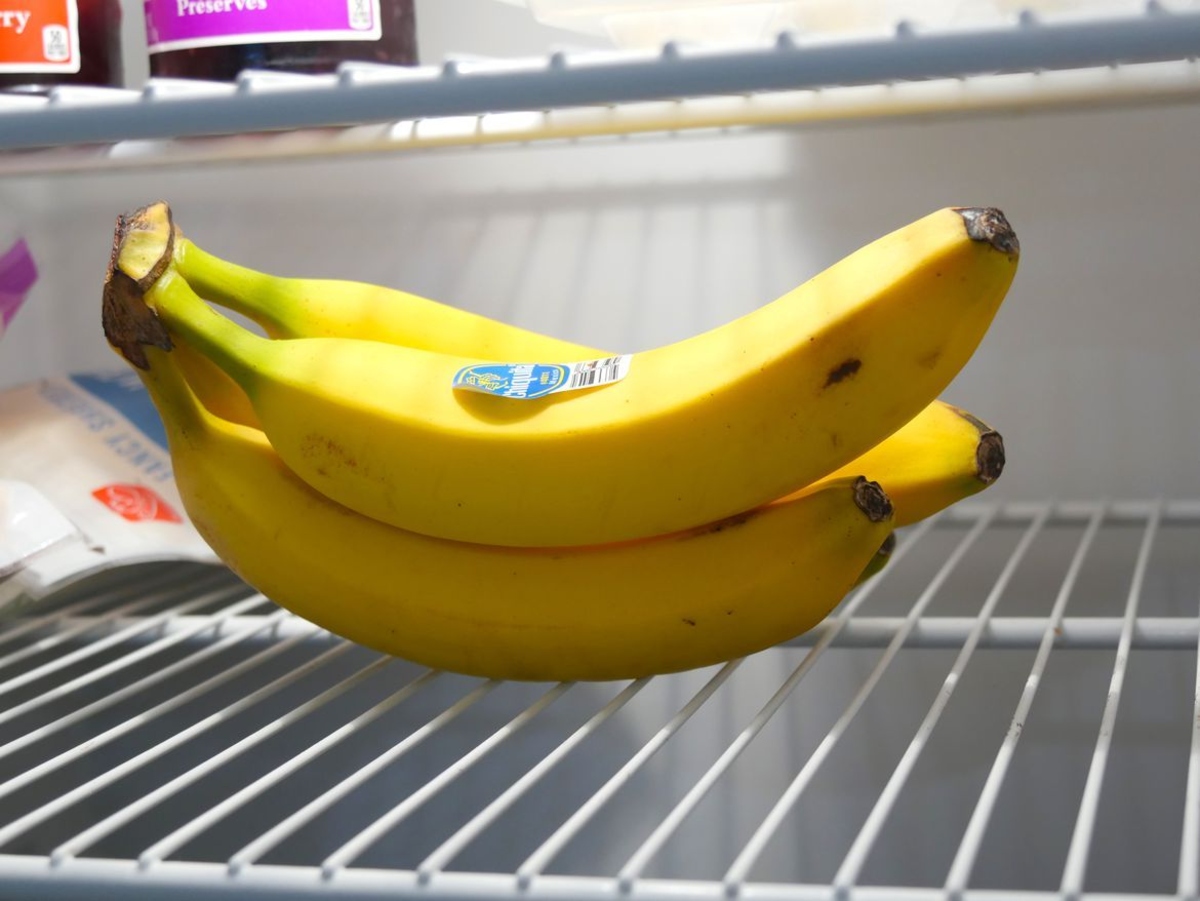
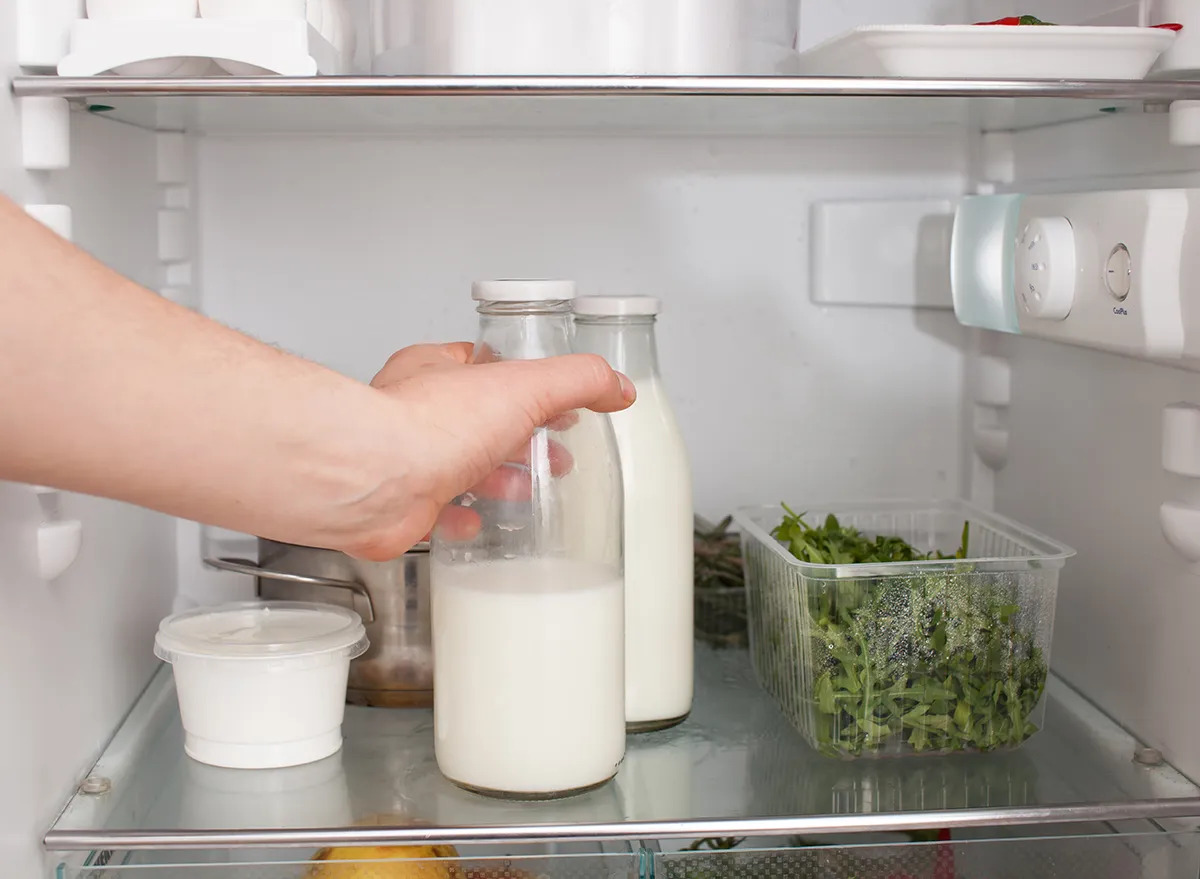


0 thoughts on “How To Store Paneer In Fridge”